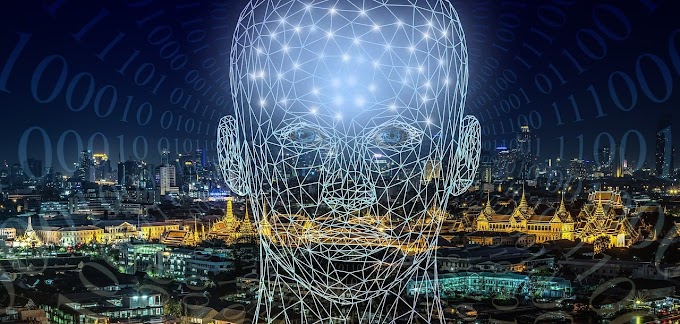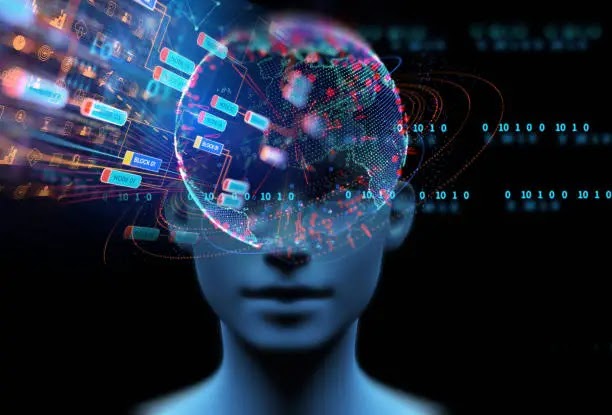Here are the Answer is What Exactly Is AI and How Does It Work?
Introduction
In today's fast-paced digital landscape, the term "AI" is frequently thrown around, but do we truly understand what Artificial Intelligence (AI) is and how it functions? In this article, we will delve into the fundamental aspects of AI, demystifying its definition, exploring its various types, and shedding light on the algorithms that power it. So, let's embark on a journey to unravel the fascinating world of AI basics.
AI Basics - Unveiling the Essence
At its core, AI, or Artificial Intelligence, refers to the ability of machines and computer systems to perform tasks that typically require human intelligence. These tasks encompass learning, reasoning, problem-solving, perception, and language understanding. AI empowers machines to mimic human cognitive functions, making them versatile and adaptable to a wide array of tasks.
The AI Definition - A Comprehensive Overview
Artificial Intelligence encompasses a wide spectrum of technologies, but its essence can be distilled into three primary categories:
Narrow or Weak AI: This form of AI is designed to perform a specific task, such as voice recognition, language translation, or recommendation systems. These systems excel in their predefined domains but lack the ability to adapt beyond their programmed scope.
General or Strong AI: Often associated with science fiction, this type of AI possesses human-like cognitive abilities. It can understand, learn, and adapt across a broad range of tasks. Strong AI remains more of a theoretical concept, with research ongoing.
Machine Learning: A subset of AI, machine learning is the process by which algorithms enable machines to learn from data. It's the driving force behind most AI applications, allowing systems to improve their performance over time without being explicitly programmed.
AI Types - Diverse Horizons
Artificial Intelligence can be categorized based on its functionality, application, and capabilities:
Reactive Machines: These AI systems follow predefined rules and do not adapt or learn from their experiences. They excel in specific tasks but are not suited for dynamic or evolving environments.
Limited Memory: These AI systems have the ability to learn from their previous experiences to some extent. They can make decisions based on past data, which is beneficial in applications like self-driving cars.
Theory of Mind: This is a concept currently in research, where AI would understand human emotions, beliefs, intentions, and more, enabling more natural and empathetic interactions.
Self-aware AI: A theoretical concept, self-aware AI would have a deep understanding of its own existence, emotions, and the ability to make ethical decisions, akin to human consciousness.
AI Algorithms Learn - The Heart of AI
AI algorithms are the building blocks that enable machines to learn, adapt, and make decisions. Here are some fundamental AI algorithms:
Supervised Learning: In this method, the algorithm is trained on labeled data to make predictions or classifications. For instance, it's used in image recognition and language translation.
Unsupervised Learning: Algorithms in this category are used for tasks where the data isn't labeled. Clustering and association are common applications, like customer segmentation or anomaly detection.
Reinforcement Learning: This approach is used in training AI systems to make sequences of decisions to maximize a reward. It's vital in areas like game-playing AI and robotics.
Deep Learning: Often involving neural networks, deep learning is responsible for the remarkable progress in tasks such as speech and image recognition. Convolutional Neural Networks (CNNs) and Recurrent Neural Networks (RNNs) are common architectures.
In conclusion, Artificial Intelligence is a fascinating and ever-evolving field. Understanding its basic principles, types, and the algorithms that drive it can provide insights into its widespread applications and potential. As AI continues to shape our world, embracing its intricacies is not only a necessity but also an opportunity to unlock a future full of innovation and possibilities.
See more about Artificial Intelligence:
Top 10 Ways AI will Alter the World in 2023
How AI is Revolutionizing Mental Health Care
The future of AI in healthcare (what to expect in the next 5-10 years)
Navigating the Moral Maze: AI's Impact on Healthcare Ethics
AI-Powered Tools Making Healthcare Accessible and Affordable
How AI is Revolutionizing Healthcare: Transforming Diagnosis and Treatment






